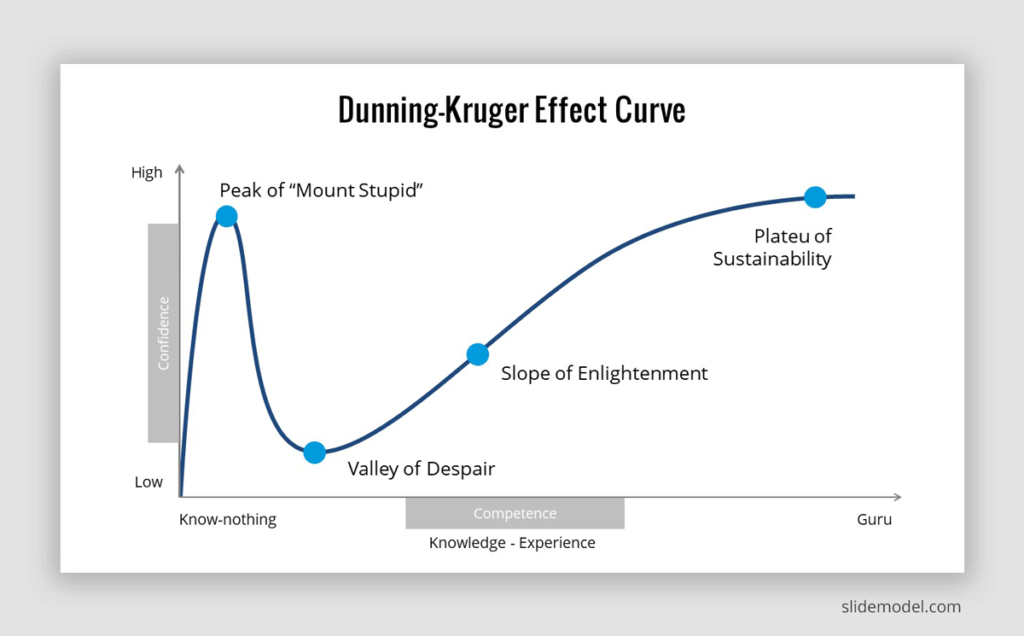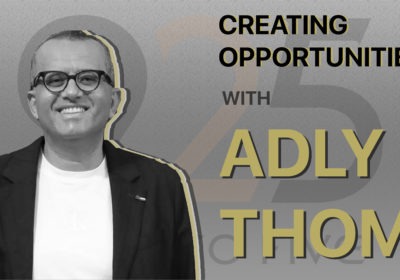Usually, we get to meet “Mr. know it all at work.” And they claim to have the necessary experience to solve complex problems. However, this confidence might be a sign of the exact opposite as science shows.
Surprisingly, confidence might be a sign of inexperience…Meet the Dunning-Kruger Effect.
What is the Dunning-Kruger Effect?
Psychologists, David Dunning, and Justin Kruger were the ones to conduct the tests on such a phenomenon. Hence, the name. Their theory basically states that people with limited knowledge are more likely to overestimate their competence or experience. This is due to the condition of having a minimum level of knowledge for someone to accurately estimate their own competence or abilities.
Despite the effect not being present in psychology books up until the 20th century, several prominent figures of history have understood this phenomenon but yet didn’t phrase it in a way to be taken as an area of study.
“Ignorance more frequently begets confidence than does knowledge,” Said the infamous Charles Darwin.

Explaining the Dunning-Kruger Curve
Luckily, this trend of sudden confidence doesn’t last very long as the person continues his/her learning journey. In fact, the confidence level plummets greatly after a certain level of knowledge and even reaches a point of almost complete uncertainty. Usually, this is where a lot of learners give up and decide to shift their focus to another area.
However, the ones who hold on to their course of learning tend to regain their confidence once again based on their experience. Typically, this fringe group is not young anymore and is quick to spot anyone claiming knowledge in their field. What we remark to as a “hunch feeling” in old people is probably the life-long experience they gained that gives them insight into people’s claims.
How to Avoid Falling Into the Dunning-Kruger Trap?
Luckily, there are several ways to spot that phenomenon in yourself and start working your way towards an accurate estimation of your knowledge:
1- Take Your Time in Making Decisions:
The Dunning-Kruger research paper, “Unskilled and Unaware of It: How Difficulties in Recognizing One’s Own Incompetence Lead to Inflated Self-Assessments” (1999) states that people tend to feel more confident when making quick decisions; while on the contrary, it’s the flawed instinct that is at work making that quick decision.
2- Challenge Your Theories:
There is no doubt that you get more insight into something when you look at it from different perspectives. Therefore, challenging your own conclusions leads you to read and search more about the topic at hand; thus, granting you a more constructive doubt.
It is like talking to yourself with two opposed personalities: you end up having stronger arguments that are much harder to challenge.
3- Try Different Reasonings:
Ultimately, this one is a staple in critical thinking. Using different logical approaches to try and justify or prove a claim will evidently lead to finding the holes in your argument.
By nature, nobody is always right. So, trying different reasonings is helpful in showing you where you are actually wrong and correcting your view.
4- Criticism Is Always Helpful:
Usually, people don’t openly welcome criticism as it appears mostly negative. However, nobody in the world reaches the top without going through rugged terrain. Unfortunately, this is just the way life is.
Being able to actively listen to criticism and identify your own weak spots is the most reliable way to do better work in the future.
5- Question Your View About Yourself:
Standing in front of the mirror and judging yourself doesn’t come easily to anybody. It’s important that one can be honest with themselves so that they can see the flaws in their own logic.
Take A Moment to Reflect
Most importantly, we need to know exactly why such research surfaced. Every employee/manager should be aware of that point since confidence turned out to be a double-edged sword. And clearly, this point has affected a lot of people in their careers whether in a positive or a negative manner.
It’s like being out on the road and having the confidence where you are; while you need to check the GPS system to know exactly where you are and how far you are from your destination.
Always remember…Check your personal GPS often.




























